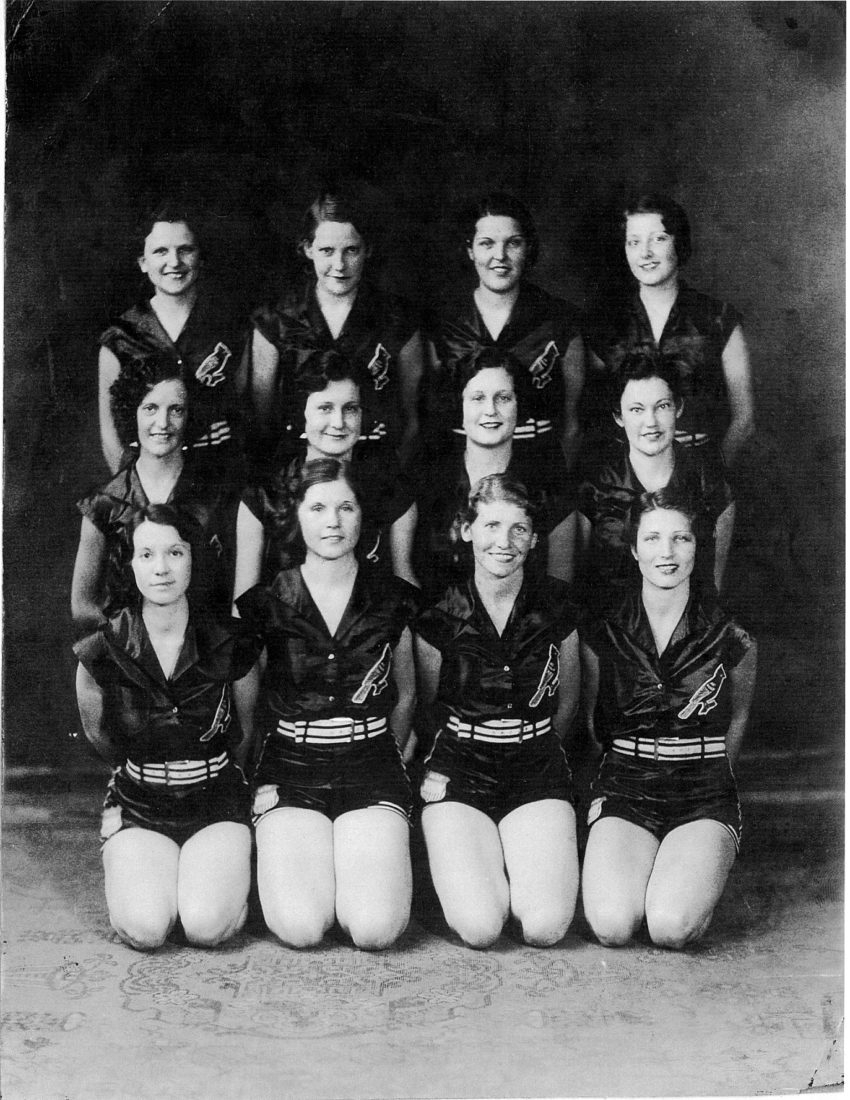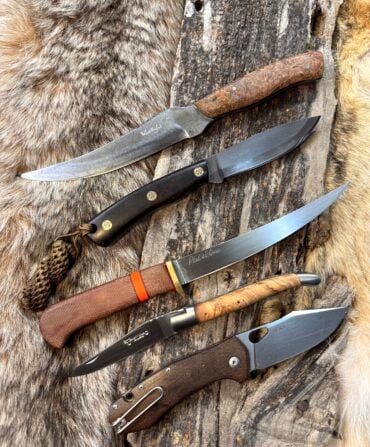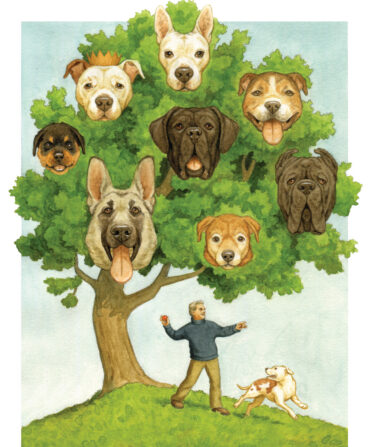“You might want to tell their story someday,” Lydia Reeder’s grandmother said as she handed her an old folder full of newspaper clippings, letters, and photographs. Tucked inside were fragments of the true story of a women’s basketball team in Depression-era Oklahoma that gave hope to Dust Bowl farming communities and would end up inspiring generations.

Dust Bowl Girls, Reeder’s fascinating book, proves her grandmother was right. Reeder tells the story of the women who played under coach Sam Babb, her great uncle. He led the Oklahoma Presbyterian College Cardinals basketball team through a barnstorming-fundraising effort across the South that resulted in 89 consecutive wins and two national titles. Along the way, the team dealt with a crop of politicians, doctors, and educators who perpetuated the idea that female athletes would destroy their “feminine image by invading a man’s world.”
Here, Reeder shares her favorite details from the book as well as her reason for telling this story now:
What surprised you most when you were researching?
The fact that women even played basketball in the 30s surprised me, and I didn’t know they were that good. The backlash against women’s sports also surprised me. There was a campaign against women’s competitive athletics from First Lady Lou Henry Hoover and the National Amateur Athletic Federation. They wanted women to exercise, but they didn’t support competitive athletics for women or for them to compete in front of a crowd. There were some weird pseudo-scientific ideas going around back then that the more women played sports, the less ladylike and less fertile they were.

Photo: Truby Studio, Durant, OK.
From left: Doll Harris; Lera and Vera Dunford; Hazel Vickers.
This was also during the Depression. Tell me a little about the importance of the time and setting in Oklahoma for telling this story.
Everybody was desperately poor. When I talked to the women, they all said they didn’t live in houses, they lived in cabins that didn’t have running water or electricity. That way of life also gave them a lot of freedom in that they were very physical, athletic girls, used to certain hardships and lots and lots of work.

Photo: Truby Studio, Durant, OK.
The OPC Cardinals pose for a huddle.
What did playing basketball in college teach these girls?
The girls I write about grew up playing ball in junior high. Everybody in the South and the Midwest—in the rural towns—played basketball back then. It was a huge part of the culture, and in some places, the Friday night basketball games were as important as going to church on Sundays. Sam learned about the girls from high school coaches, and he was able to offer them financial aid to play in college. So Sam didn’t have to teach them how to play basketball, but he taught them discipline.
One of the rules Sam gave the team was, “Players will learn to win gracefully.” Why was that so important?
They had to win because they supported themselves financially. But Sam understood they were under a microscope back then. A man coaching a women’s team had to be perfect in the way they interacted together. And there were those people who didn’t think women should be playing basketball at all.

Photo: Courtesy the author's personal collection; Truby Studio, Durant, OK.
From left: Coach Sam Babb; Part of the OPC Cardinals team from the 1932-33 season.
Why is it important to tell this story now?
While I wrote, I thought of these women as real live superheroes. They inspired a community during hard economic times and they became invincible girls during a time of widespread vulnerability. Now, women in film and sports are on the edge of really becoming equal to men as far as being sports idols or movie superheroes. I want women to save the day now as they did in their little towns back then.
CJ Lotz Diego is Garden & Gun’s senior editor. A staffer since 2013, she wrote G&G’s bestselling Bless Your Heart trivia game, edits the Due South travel section, and covers gardens, books, and art. Originally from Eureka, Missouri, she graduated from Indiana University and now lives in Charleston, South Carolina, where she tends a downtown pocket garden with her florist husband, Max.
Garden & Gun has affiliate partnerships and may receive a portion of sales when a reader clicks to buy a product. All products are independently selected by the G&G editorial team.








